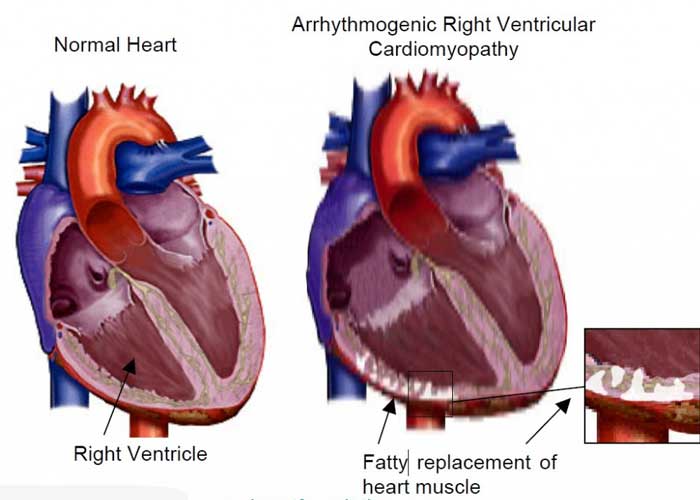Arrhythmogenic Right Ventricular Dysplasia Treatment
#Congestive heart failure doctor in Hyderabad

Arrhythmogenic Right Ventricular Dysplasia (ARVD/C) is also know as Arrhythmogenic Right Ventricular Cardiomyopathy (ARVC). It is one of the leading causes of death among young sportspersons. However, it can affect people of any age & any level of activity.
It is rare condition that occurs when the muscle tissue in the right ventricle is damaged & gets replaced by scar tissue. This results in disruption of heart's electrical signals & arrhythmias. It often remains undiagnosed for years as symptoms may not be noticeable. It can lead to complications like heart failure or sudden cardiac arrest.
Stages of SRVD
There are 3 stages of ARVD:
Concealed Stage: In this stage, the patient experiences no symptoms but may notice rapid heartbeat while strenuous exercise. However, the tests may not reveal any abnormality in this stage.
Electrical Stage: This stage presents a greater risk of ventricular arrhythmias & sudden cardiac arrest. An electrocardiogram can reveal issues in heart rhythm.
Structural Stage: This stage poses the highest risk of sudden cardiac death. Imaging tests reveal changes in the structure of the heart.
Nearly 60% of the cases of ARVD occur in patients with a family history. Apart from genes, there are other factors like congenital abnormalities and viral or inflammatory myocarditis which may cause ARVD.
What are the symptoms of ARVD?
Common symptoms may include:
Irregular heart beat
Pain or discomfort in chest
Breathlessness
Fainting spells
Dizziness
Swelling in abdomen, legs, ankles or feet
Palpitations
Men are more often affected by this condition as compared to women. And symptoms may develop between 20 to 50 years of age.
How is ARVD diagnosed?
Your cardiologist may diagnose ARVD based on your medical history, physical exam & diagnostic tests. Some of the recommended tests Include:
Electrocardiogram
Transthoracic Echocardiogram
Holter Monitor
Angiogram
Electrophysiology testing
Cardiac MRI
Cardiac CT
Biaopsy
How is ARVD treated?
There is no cure for ARVD. The goal of treatment is to control the ventricular arrhythmias, prevent blood clots & manage the heart failure.
Treatments include:
Antiarrhythmic medications to prevent sustained ventricular arrhythmias and sudden cardiac death
Diuretics or beta blockers to ease the pressure on heart
Anticoagulants to prevent blood clots
Radiofrquency catheter ablation if ventricular arrhythmia does not improve with medications
Implantable Cardioverter defibrillator for patients at risk of sudden cardiac arrest
Heart Transplant if all other treatments fail
How to take care of yourself when living with ARVD?
Limit alcohol intake
Avoid tobacco
Eat healthy
Limit caffeine
Maintain your ideal body weight
Limit strenuous physical activity


